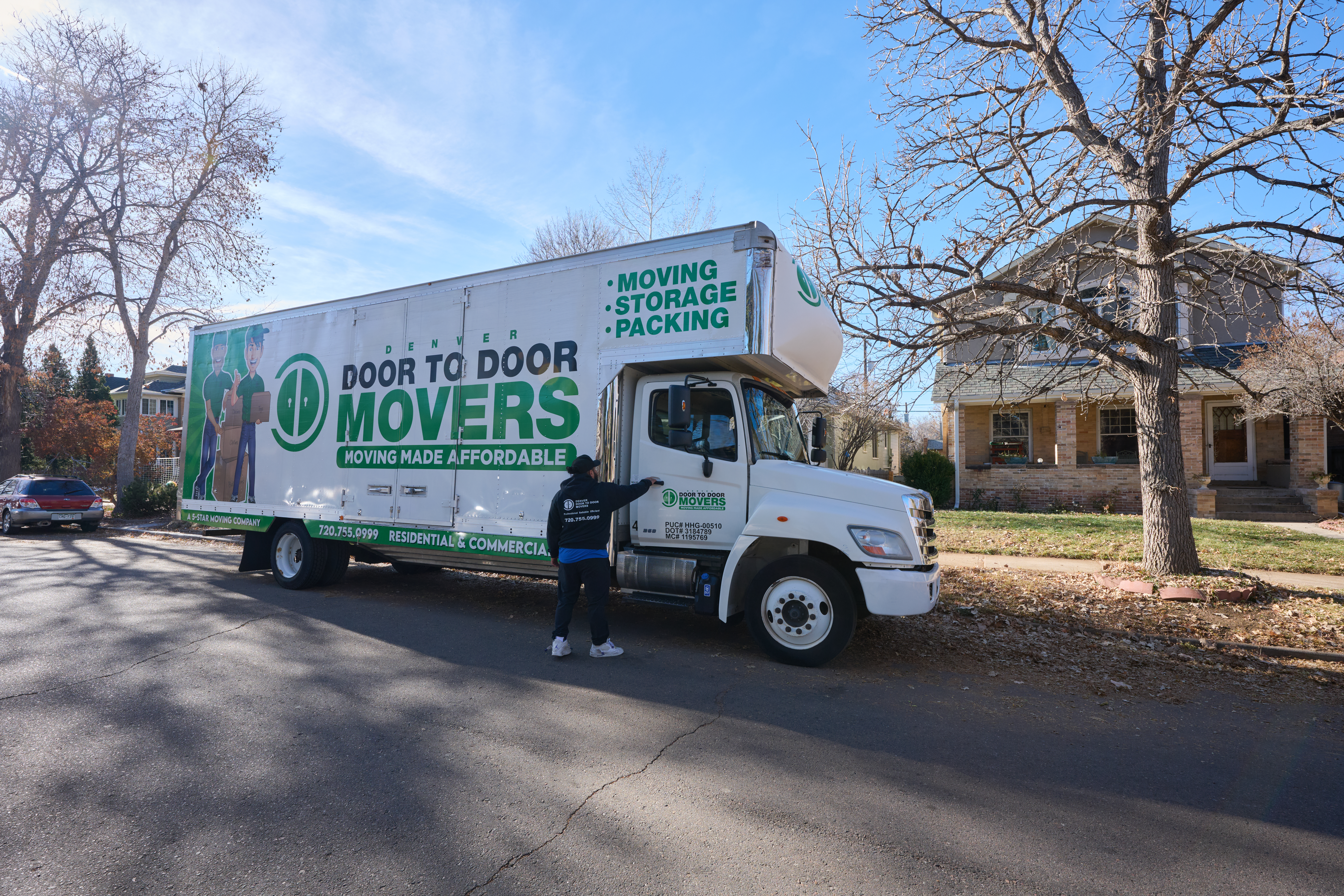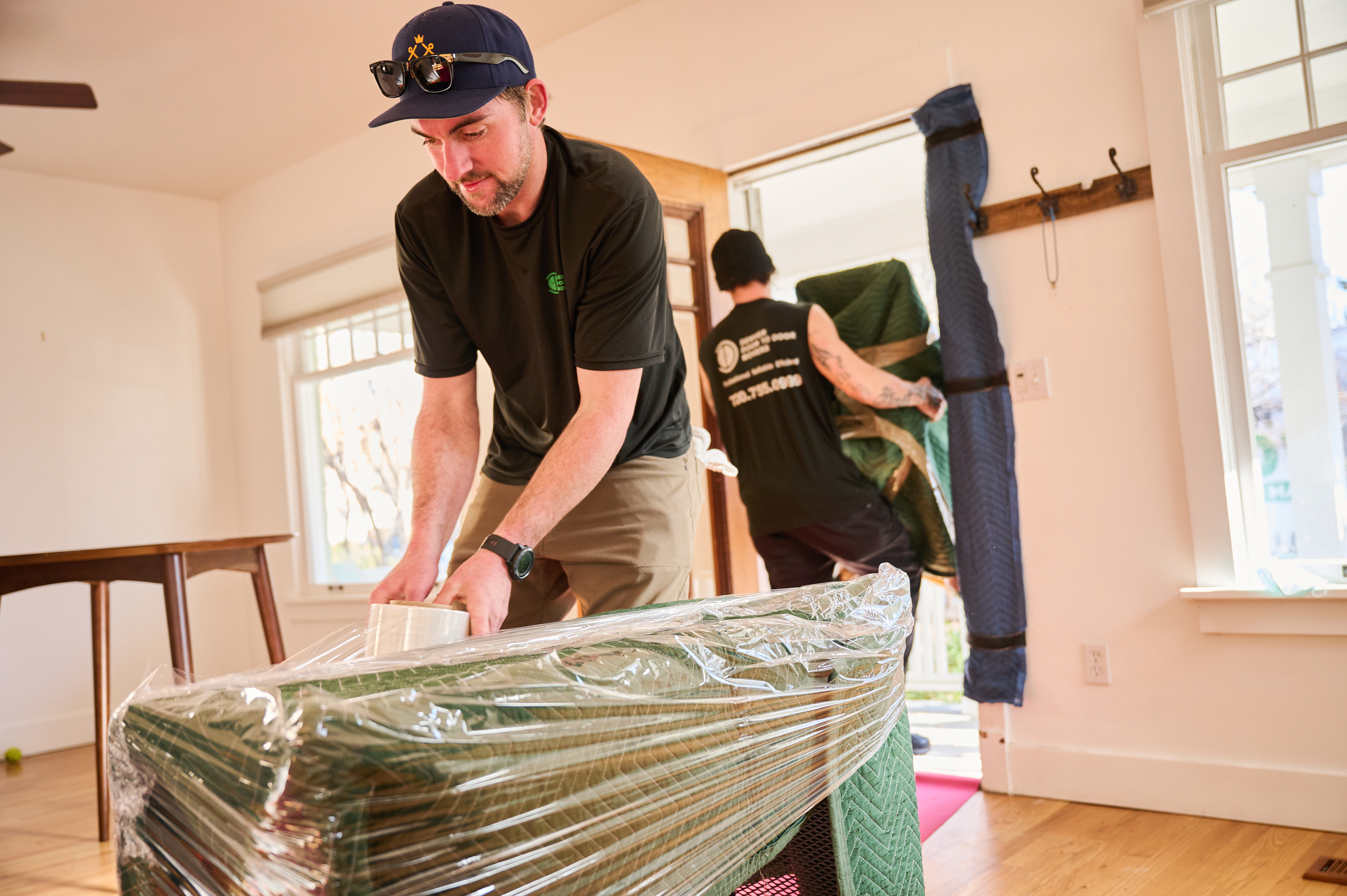
Planning and budgeting for an office move? Find out the average office moving costs, from moving office equipment to IT expenses.
Moving a long distance is no joke, but you’ll be all smiles if you hire the right interstate moving company


Moving to another state or across the country is an adventurous chapter of life, but poor planning can take a toll. If you’re well prepared and know how to find a licensed and insured interstate moving company to pack, drive, and deliver your home’s belongings—you’ll thank yourself later. Take control of your long-distance move destiny and use this hiring guide to find and hire an interstate moving company.
Long-distance movers can handle several moving services for you, ranging from basic core services to full-service add-ons. It’s always best to speak with a local moving company to get a full understanding of all the services they provide and at what cost.
Core services that long-distance movers provide include:
Loading and unloading: This is the main service where the movers physically load your belongings onto the moving truck at the origin and unload them at the destination.
Transportation: Part of the main service, which involves driving your household goods safely across state lines or long distances to your new home.
Disassembly and reassembly: Long-distance movers often disassemble large furniture (like bed frames and tables) for transport and then reassemble them at the new location.
Basic insurance: Moving companies typically include a basic level of liability protection for your items during the move.
Long-distance movers also offer several optional add-on services to make your move easier. These include:
Full packing: Movers pack all of your belongings, supplying all the necessary boxes and packing materials.
Partial packing: Movers only pack specific, fragile, or hard-to-pack items (like antiques, electronics, or glassware).
Unpacking: Movers can unbox and place your belongings in their designated rooms at the new location.
Storage services: If there's a gap between your move-out and move-in dates, long-distance movers can offer either short-term or long-term storage.
Specialty item handling: Services for items that require extra care or specialized equipment, like pianos, fine art, or pool tables.
Car shipping: Arranging or directly transporting your car, truck, or other vehicles to your new location.
Debris removal: After the move, the moving company may return to pick up and dispose of empty moving boxes and packing materials.
Online tracking: Many larger companies provide systems for you to track the location of your shipment while it is in transit.
The thought of taking on a long-distance move entirely by yourself is certainly possible, but it is a monumental undertaking. While you can rent a truck and drive your household goods across state lines, it’s important to consider the logistics—the physical toll of loading and unloading, the driving distance in a potentially unfamiliar vehicle, and most importantly, the time and overall effort. It’s best to hire a long-distance mover near you to avoid the stress and exhaustion of a complex, self-managed relocation.
I had a challenging move with an oversized sofa and large art pieces. The movers arrived well-prepared with specialized equipment, including a heavy-duty dolly and protective covers for the artwork. They expertly handled every challenge, ensuring everything was transported smoothly without any damage to my property or belongings.
The average cost to hire long-distance movers runs from $2,400 to $6,900. That’s a broad range, and budgeting may feel daunting, but it’s easier to narrow down a more exact figure based on several factors, including the number of items, the time of year, and the distance you move. If you’re moving out of a small house and relocating just 200 miles away, movers might charge between $700 and $2,500. If you’re moving out of a large house and moving across the country, it will be more expensive, likely between $6,500 and $10,000.
Weight is an important factor in long-distance moves, too. Movers will use either the weight at the origin or destination to determine the cost. This ensures they have a large enough moving team to handle all your belongings safely. Professional movers charge between $0.50 and $0.80 per pound before factoring in the distance. Moving more than 100 miles away is typically considered a long-distance move; however, some companies consider 400 miles or more a long-distance move.
Before researching a moving company, you should know that some moving companies only serve customers moving long distances—state to state or cross-country. They’re called interstate movers. On the other hand, intrastate movers manage local and in-state moves.
When you hire a moving company to transport your household items long distances, reliability and reputation should be at the top of your priority list. Start with recommendations from family, friends, and real estate professionals you’ve worked with in the past. You can also read online reviews and testimonials on your candidate’s company page, and review websites like Angi to find reputable professionals.
You’re searching for a quality moving company you can trust, but you’re also looking for a company that fits your budget. Keep in mind that interstate moving companies base a large part of your quote on your shipment’s total weight. Talk with at least three moving companies to compare quotes and services before deciding which you’ll choose.
Before the moving companies can give you an accurate price quote, they’ll need detailed information about what you're moving. So, before hiring an interstate mover, take a mental inventory or write a shortlist of what you’d like them to move so that you can answer their intake questions on your first call. Later in the process, they’ll verify your shipment size by scheduling an in-person inventory or asking you to take a video of your belongings.
The cost to hire movers depends on many factors, including the number of rooms, oversized items like a piano, and whether you need a full-service move that includes packing, delivery, and unpacking. To keep your costs down, it’s important to lighten your load and donate, recycle, and throw away things you don’t need.
Don’t forget to tell the movers about any physical challenges they might have on moving day. For example, they’ll want to know about the number of stairs, narrow hallways and doorways, and parking issues like small streets or overhead power lines near the truck’s parking spot. If you’re upfront about these trouble spots, you won’t be surprised later when the quote reflects inconvenience charges.
After purging unwanted items and creating a moving plan, ask your top moving company candidates to schedule an in-person estimate. It’s the best way to get an accurate price. If the onsite surveyors take inventory, they’ll have the best information to plan your packing and loading strategy. You’ll also avoid fee changes on move-out day.
You can find more background information on interstate moving companies by searching the Federal Motor Carrier Safety Administration (FMCSA) website. This website has insurance and registration records in addition to the company’s complaint history. If you still have questions about their business practices, it’s time to call and clarify the details.
Ask your moving companies as many questions as needed to feel confident about hiring them to move your home’s belongings. They're in business to take care of clients and their most important things, so they shouldn’t have problems sharing information. Use these questions to guide your discussions.
Does the company subcontract any work to other moving services?
How do they protect fragile items from damage during transit?
What training do the workers that pack and move your things have?
Do they offer full-value protection or an alternative level of liability insurance to cover damage?
What’s the reimbursement policy?
Do they calculate fees by the hour or charge a flat rate?
Does the company have experience moving valuable collectibles?
Interstate moving companies operate differently than local ones, so be sure to ask questions about company policies, long-distance estimates, and bill of lading details.

Over the course of reviewing candidates, you’ll probably have several conversations with your chosen moving companies about factors like total weight and pricing, but once you’ve chosen your top pick, you should schedule a final interview to go over the small details. Also, ask about things you might not have thought about earlier, like:
Employee background checks
How many packers come each day
Stops at interstate weigh stations
How the driver handles weather and traffic delays
What to expect on pick up and delivery days
Most moving companies use one of three different estimates: non-binding estimate, non-binding to exceed estimate, or binding estimate. Before you sign an official contract, ensure it includes the correct fees, rate, overage charges, and inventory sheet. You’ll need this official information on the document if you need to file a claim later.
Non-binding estimate: The estimate will likely fluctuate after the moving company calculates the actual weight. If the estimate is initially low, you’ll pay more later. You pay the original estimate and potentially 10% more if there’s excess weight on delivery.
Non-binding to exceed estimate: Moving companies often use this estimate for long-distance moves. You won’t pay for overages beyond your quote. If your shipment is less than the quote, you’ll pay only the fee for the actual weight.
Binding estimate: This type of estimate is like a flat fee. The moving company bases charges on the estimated weight. You don’t pay for overages, but you also won’t save money if the shipment weighs less.
The bill of lading is the essential move document. It helps you post-move if there are missing items, if the weight estimate changes, or if you have damage. Before you sign, ensure the details are correct. The move can’t start until you sign off on the details.
Your bill of lading should include:
The moving company’s contact information (and subcontractors if used), including the address, phone number, license information, and the U.S. Department of Transportation identifying number
Your contact information and both addresses for pickup and delivery
The moving trucks and van’s identification numbers
The moving company’s services and rates, including specialty items like packing materials
A payment schedule with terms and conditions: payment methods, minimum charges, additional fees, and deadlines
Moving insurance information
Details of your binding, non-binding, or non-binding estimate exceed the estimate
Keep an eye out for common moving industry red flags. You could save yourself time and money.
If you’re researching a company and notice several name changes during its history, consider that a red flag. The company could be trying to outrun complaints from previous company names. Ask for more information about its licensing and insurance.
Most moving companies ask for payment at delivery because variables, like the total weight, could change before drop-off. Hesitate and ask more questions if your company wants a large sum upfront. Use a credit card to avoid fraud.
After your move, it’s time to pay it forward and leave reviews for the next set of long-distance movers. They’ll appreciate your honest feedback about the moving company’s service.
If your experience with the moving company was positive, offer to write a testimonial or leave your name and number to use as a reference later. If you did run into trouble during the moving process, your bill of lading should have the dispute settlement information for help with the claim process.
From average costs to expert advice, get all the answers you need to get your job done.

Planning and budgeting for an office move? Find out the average office moving costs, from moving office equipment to IT expenses.

Learn how much it costs to ship a car based on distance, automobile size and condition, and shipping method to prepare for your move.

How much do movers cost? The answer varies based on a lot of factors, but we’ve laid them all out for you here. Plan your budget with our cost guide.

With some extra planning, moving during the cold season is worth the hassle. Find out why winter can be the best time to move and how to do it successfully.

These seven tips will help you to steer clear of moving scams and find a reputable pro to handle your move. Check out our guide to learn more.

Thieves may target moving trucks because they’re loaded with valuables. These tips will help you protect your items in a moving truck.